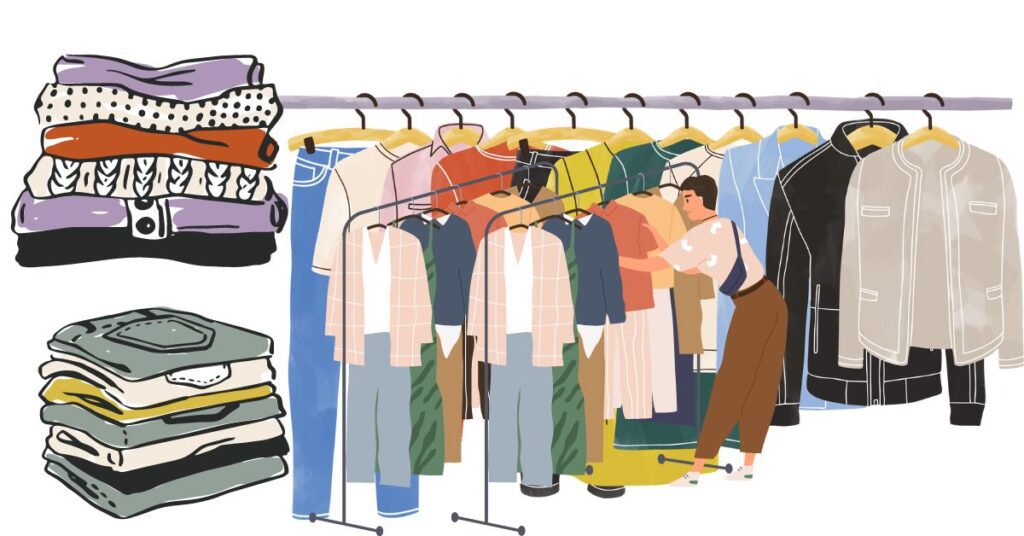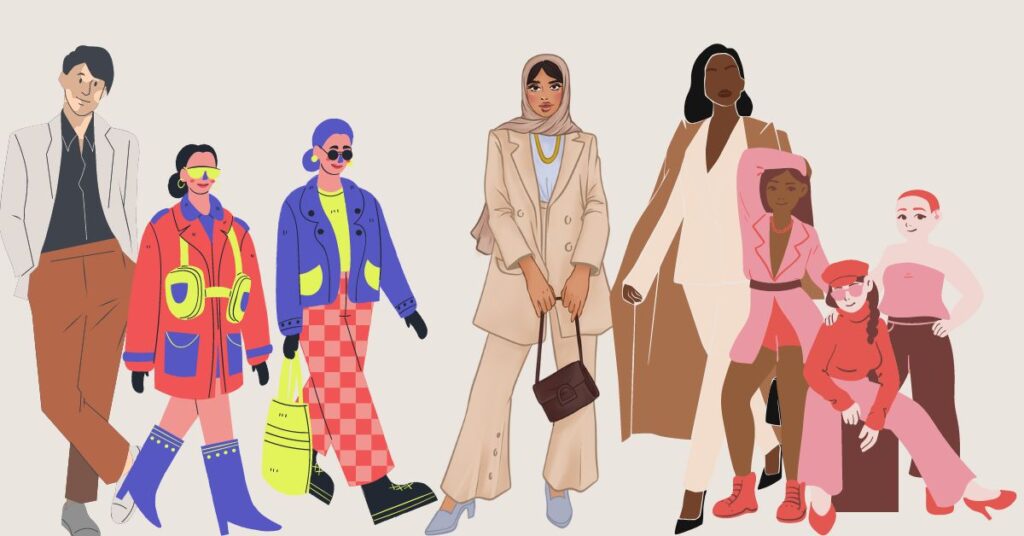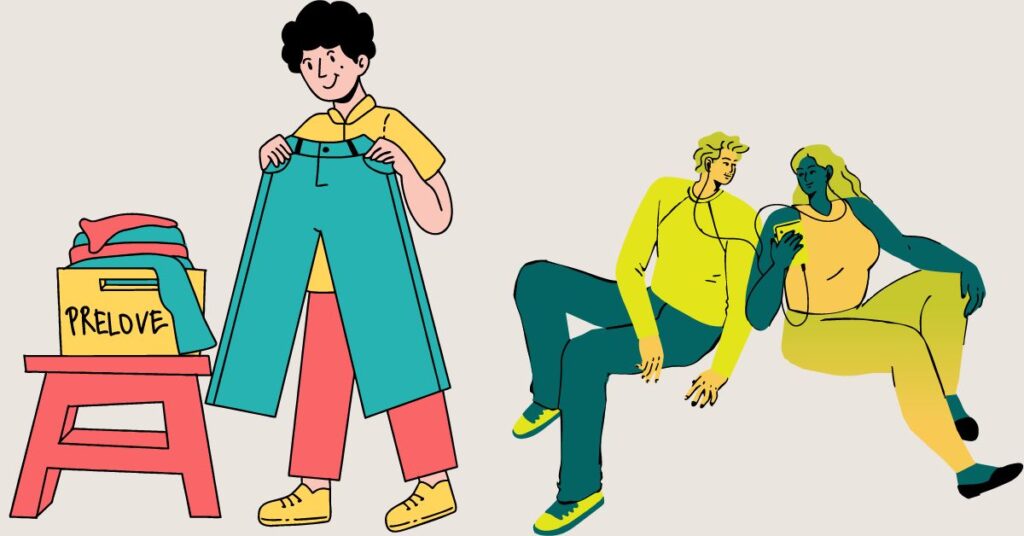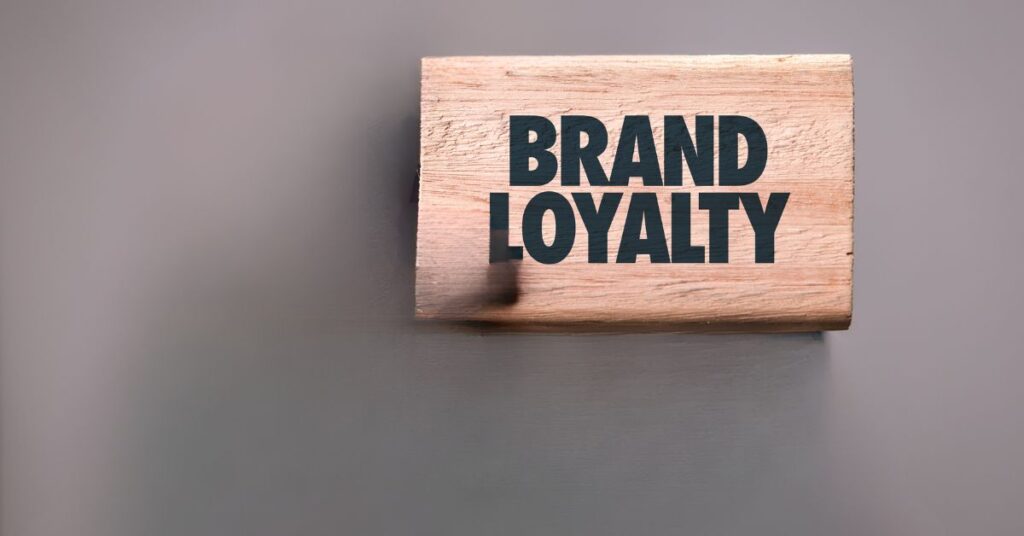Top Sustainable Clothing Brands Supercharge Sustainable Style
Sustainable style refers to clothing and fashion created with the environment, people, and animals in mind. It is the idea of dressing in a way that is both fashionable and eco-friendly. With the fashion industry being one of the largest polluters in the world, sustainable style has become increasingly important in recent years.
The fashion industry is responsible for significant pollution, with textile production alone accounting for 10% of global carbon emissions. In addition, clothing manufacturing uses large amounts of water and chemicals, and the industry is known for its exploitative labor practices. This has led to a growing awareness of fashion’s environmental and social impact and an increased demand for ethical and sustainable clothing brands.
The concept of sustainable style encompasses several factors, including using sustainable materials, fair labor practices, and animal welfare. Sustainable materials are produced using sustainable practices, such as organic cotton or recycled polyester. These materials have a lower environmental impact than traditional materials, such as conventional cotton or synthetic fibers.
Fair labor practices refer to the ethical treatment of workers throughout the entire supply chain. This includes ensuring fair wages, safe working conditions, and no exploitation or discrimination. Sustainable styles also consider the welfare of animals and advocate for animal-free materials, such as vegan leather and faux fur.
By supporting sustainable style and ethical clothing brands, we can reduce the fashion industry’s negative impact on the environment and society. These brands are committed to using sustainable materials, reducing waste and pollution, and ensuring workers are treated fairly throughout the supply chain.
Moreover, supporting sustainable fashion can be practical as well. Investing in high-quality pieces made with durable and sustainable materials can build a stylish and environmentally conscious wardrobe. Ethical fashion does not necessarily mean compromising style, as several ethical clothing brands offer on-trend and fashionable pieces.
Sustainable style is a significant movement that is becoming increasingly popular. It is a way to dress fashionably while being conscious of the impact of fashion on the environment and society. By supporting sustainable clothing brands and making sustainable fashion choices, we can contribute to a better future for our planet and humanity.

Factors to Consider When Choosing Sustainable Clothing Brands
When choosing sustainable clothing brands, there are several factors to consider. These factors range from the brand’s environmental impact to the fair labor practices they follow. Here are some essential factors to consider:
- Sustainability and environmental impact: It is essential to consider the environmental impact of your clothing. Look for brands that use sustainable materials, such as organic cotton, hemp, or recycled fibers. These materials have a lower environmental impact than conventional materials such as polyester or traditional cotton. Additionally, consider the brand’s manufacturing process and whether they follow eco-friendly practices such as using renewable energy, minimizing waste, and reducing water usage.
- Fair labor practices: The fashion industry is notorious for exploitative labor practices, such as low wages and poor working conditions. When choosing an ethical clothing brand, consider the working conditions of the people who make the clothes. Look for brands with transparent supply chains and ensure workers are treated fairly throughout the supply chain.
- Animal welfare: Sustainable clothing brands should also be mindful of animal welfare. Look for brands that use animal-free materials, such as vegan leather or faux fur. Brands should also ensure that they do not support animal cruelty in any form.
- Transparency and accountability: Transparency is an essential factor in ethical clothing brands. Look for brands that are transparent about their manufacturing process, materials used, and their environmental and social impact. Also, consider the brand’s commitment to sustainability and ethical practices. Are they consciously trying to reduce their environmental impact or just using buzzwords to attract customers?
Practical examples of top sustainable clothing brands that follow these factors include Patagonia, which uses organic cotton and recycled polyester in its clothing and has a transparent supply chain. Another example is Everlane, which uses sustainable materials, is transparent about its pricing, and ensures fair labor practices throughout its supply chain. Nisolo is an ethical shoe brand focusing on transparency, sustainability, and fair labor practices.
When choosing ethical clothing brands, it is crucial to consider factors such as sustainability, fair labor practices, animal welfare, and transparency. We can contribute to a more sustainable and equitable fashion industry by supporting ethical clothing brands that prioritize these factors.

Top Sustainable Clothing Brands
Regarding ethical clothing brands, several notable names come to mind. These brands have gained popularity due to their commitment to sustainability, fair labor practices, and animal welfare. Here are ten of the top ethical clothing brands to consider when making your next purchase:
- Patagonia: Patagonia is a well-known outdoor apparel brand that has pioneered sustainable clothing. They use organic cotton and recycled polyester in their clothing and are committed to reducing their environmental impact.
- Reformation: Reformation is a famous brand that offers sustainable and ethical clothing options. They use sustainable materials and follow eco-friendly practices in their manufacturing process. Additionally, they have a transparent supply chain and ensure fair labor practices.
- Everlane: Everlane is a brand that offers sustainable and transparent clothing options. They use sustainable materials and provide transparent pricing. Everlane also ensures fair labor practices throughout its supply chain.
- Pact: Pact is a brand that offers sustainable and ethical clothing options made from organic cotton. They are committed to minimizing their environmental impact and ensuring fair labor practices.
- People Tree: People Tree is a brand focusing on fair trade and sustainable clothing. They use organic cotton and other sustainable materials and are committed to ensuring fair labor practices throughout their supply chain.
- Eileen Fisher: Eileen Fisher is a sustainable fashion brand that uses organic cotton and other sustainable materials in their clothing. They are committed to reducing their environmental impact and ensuring fair labor practices.
- Stella McCartney: Stella McCartney is a luxury fashion brand committed to sustainability and animal welfare. They use sustainable materials and no animal products in their clothing.
- Veja: Veja is a sustainable shoe brand that uses eco-friendly materials such as recycled plastic bottles and wild rubber. They are committed to transparency and ensuring fair labor practices.
- Amour Vert: Amour Vert is a sustainable clothing brand that uses sustainable materials such as Tencel and organic cotton. They are committed to reducing their environmental impact and ensuring fair labor practices.
- Nisolo: Nisolo is a sustainable shoe brand focusing on transparency, sustainability, and fair labor practices. They use eco-friendly materials and ensure workers throughout their supply chain are treated fairly.
These top ethical clothing brands offer various sustainable and ethical options for consumers who want to make a conscious choice regarding their clothing. We can contribute to a more sustainable and equitable fashion industry by supporting these brands.

Comparison of Top Sustainable Clothing Brands
When choosing ethical clothing brands, there are several options to consider. Each brand has its unique approach to sustainability, fair labor practices, and animal welfare. Here’s a comparison of some of the top ethical clothing brands and what sets them apart:
- Patagonia: Patagonia is known for its commitment to environmental sustainability. They use organic cotton and recycled polyester in their clothing and have a transparent supply chain. Patagonia also donates 1% of its sales to environmental causes.
- Reformation: Reformation focuses on reducing environmental impact using sustainable materials and eco-friendly practices. They also have a transparent supply chain and ensure fair labor practices.
- Everlane: Everlane is committed to transparency and ethical practices throughout its supply chain. They use sustainable materials and offer transparent pricing. Everlane also ensures fair labor practices and partners with ethical factories.
- Pact: Pact is a brand that uses organic cotton and minimizes its environmental impact. They are also committed to ensuring fair labor practices throughout their supply chain.
- People Tree: People Tree is a fair trade and sustainable clothing brand that uses organic cotton and other sustainable materials. They also prioritize social justice and ensure fair wages for workers.
- Eileen Fisher: Eileen Fisher uses sustainable materials such as organic cotton and linen in their clothing. They also have a take-back program where customers can return their clothing to be repurposed or recycled.
- Stella McCartney: Stella McCartney is a luxury fashion brand committed to sustainability and animal welfare. They do not use animal products in their clothing and have a sustainable supply chain.
- Veja: Veja is a sustainable shoe brand that uses eco-friendly materials such as recycled plastic bottles and wild rubber. They also ensure fair labor practices and transparency throughout their supply chain.
- Amour Vert: Amour Vert uses sustainable materials such as Tencel and organic cotton in their clothing. They also plant a tree for every t-shirt sold, ensuring fair labor practices.
- Nisolo: Nisolo is a sustainable shoe brand focusing on transparency, sustainability, and fair labor practices. They use eco-friendly materials and ensure workers throughout their supply chain are treated fairly.
Each of these top ethical clothing brands has its unique approach to sustainability, fair labor practices, and animal welfare. By considering these factors and choosing brands that align with your values, you can positively impact the environment and support a more equitable fashion industry.

Benefits of Supporting Ethical Clothing Brands
Choosing to support ethical clothing brands can have a wide range of benefits, both for you as a consumer and for the environment and society as a whole. Here are just a few of the many benefits of choosing to support ethical clothing brands:
- You can reduce your environmental impact: Fast fashion significantly affects the environment, with textile production being one of the largest polluters of freshwater globally. Ethical clothing brands often use sustainable materials, such as organic cotton or recycled polyester, and employ eco-friendly manufacturing processes, which can help reduce your environmental footprint.
- You can support fair labor practices: Many fast fashion brands are known for exploiting workers in their supply chain, paying low wages, and providing poor working conditions. By supporting ethical clothing brands, you can help ensure that workers throughout the supply chain are treated fairly and paid a living wage.
- You can promote transparency and accountability: Ethical clothing brands are often transparent about their supply chain, manufacturing processes, and environmental impact. Supporting these brands can encourage greater transparency and accountability in the fashion industry.
- You can invest in high-quality, durable clothing: Ethical clothing brands often prioritize quality over quantity, producing clothing made to last. While the upfront cost may be higher, investing in high-quality clothing can save you money in the long run, as you won’t need to replace your clothing as frequently.
- You can support a more sustainable fashion industry: By supporting ethical clothing brands, you are helping promote a more sustainable fashion industry. When more consumers demand sustainable, ethically made clothing, fast fashion brands may be forced to change their practices or risk losing customers.
There are many ethical clothing brands to choose from, and by supporting these brands, you can positively impact the environment and society while investing in high-quality, durable clothing. So why not try it and see how you can make a difference with your fashion choices?

How to Incorporate Ethical Clothing Brands into Your Wardrobe
Incorporating ethical clothing brands into your wardrobe can seem daunting at first, especially if you’re used to shopping in fast fashion. However, with a few simple tips and tricks, it’s easier than you might think to build a sustainable and ethical wardrobe that aligns with your values. Here are some practical advice on how to incorporate ethical clothing brands into your wardrobe:
- Take inventory of your current wardrobe: Before shopping for new clothing, take some time to evaluate your existing wardrobe. Look for pieces you wear frequently and identify gaps or areas where you need to add new items. This will help you make more intentional and sustainable purchases.
- Research ethical clothing brands: There are many ethical clothing brands to choose from, each with its unique style and focus. Take some time to research different brands and find ones that align with your values and aesthetics. You can start by looking at the brands mentioned in our previous sections or using resources such as the Good On You app, which rates clothing brands based on their ethical and sustainable practices.
- Invest in versatile basics: When you’re just starting to build a sustainable wardrobe, it’s essential to invest in versatile basics that can be mixed and matched with different outfits. Look for t-shirts, jeans, and jackets that can be dressed up or down and worn in different seasons.
- Shop secondhand: Another great way to incorporate ethical clothing into your wardrobe is to shop secondhand. You can find gently used clothing at thrift stores, consignment shops, and online marketplaces such as Poshmark or Depop. Shopping secondhand is not only more sustainable, but it’s also often more affordable than buying new.
- Focus on quality over quantity: Ethical clothing brands often prioritize quality over quantity, producing clothing that is made to last. While the upfront cost may be higher, investing in high-quality clothing can save you money in the long run, as you won’t need to replace your clothing as frequently.
- Mix and match with fast fashion: Incorporating ethical clothing brands into your wardrobe doesn’t mean you must throw out all your fast fashion pieces. Instead, mix and match your fast fashion pieces with your new ethical purchases. This can help you extend the life of your fast fashion clothing while reducing your environmental impact.
Incorporating ethical clothing brands into your wardrobe is about making intentional and sustainable choices. By taking inventory of your current wardrobe, researching ethical brands, investing in versatile basics, shopping secondhand, focusing on quality over quantity, and mixing and matching with fast fashion, you can build a wardrobe that aligns with your values and looks great, too!

The benefits, the challenges, and tips for finding and buying sustainable clothing.
Buying sustainable clothing comes with a plethora of benefits that go beyond simply looking good. Not only does it contribute to a healthier planet, but it also helps support ethical practices in the fashion industry. However, it’s essential to acknowledge that some challenges are involved in finding and purchasing sustainable clothing. But fret not because I’m here to provide insightful tips to make your sustainable fashion journey a breeze.
Let’s start with the benefits. One of the most significant advantages of buying sustainable clothing is its positive environmental impact. Traditional fashion production methods often involve excessive water usage, harmful chemical dyes, and the release of greenhouse gases. By choosing sustainable options, you’re reducing your carbon footprint, conserving water, and promoting a cleaner, greener Earth.
Another benefit of sustainable clothing is that it supports ethical practices. Fast fashion, known for its cheap and disposable nature, is notorious for exploiting workers in low-wage countries and maintaining unsafe working conditions.
On the other hand, sustainable fashion brands prioritize fair wages, safe working conditions, and transparent supply chains. By purchasing from these brands, you support workers’ livelihoods and advocate for a more equitable fashion industry.
Now, let’s address the challenges. One of the main obstacles to buying sustainable clothing is the higher price tag. Sustainable garments often come at a higher cost due to eco-friendly materials, fair wages for workers, and ethical production processes.
However, it’s essential to consider the long-term value of these items. Investing in quality, durable pieces means they will last longer, saving you money in the long run and reducing your overall consumption. Finding sustainable clothing can also be a challenge due to limited availability.
Sustainable fashion is still a growing movement, and it can take more work to find sustainable options than conventional brands. However, the good news is that the popularity of sustainable fashion is increasing, and more brands are joining the movement. With a little effort and research, you can discover a variety of sustainable brands, both online and in local boutiques.
Now, let’s dive into some tips for finding and buying sustainable clothing. Firstly, educate yourself. Familiarize yourself with sustainable fabrics, such as organic cotton, linen, hemp, and Tencel. Look for certifications like GOTS (Global Organic Textile Standard) or Fair Trade labels to ensure ethical production. By understanding these aspects, you’ll be better equipped to make informed choices.
Secondly, consider shopping secondhand. Thrift stores, consignment shops, and online platforms offer a treasure trove of gently used clothing waiting to be discovered. Buying secondhand not only extends the lifespan of garments but also reduces waste and saves resources.
Thirdly, look for local and independent sustainable brands. Supporting local businesses boosts your community’s economy and reduces the carbon footprint associated with shipping.
Lastly, embrace the concept of a capsule wardrobe. Focus on quality over quantity and invest in versatile pieces that can be mixed and matched. By curating a capsule wardrobe, you’ll simplify your style choices while reducing the need for excessive shopping.
Building a sustainable wardrobe is a journey, and taking it step by step is okay. Start by making small changes, like swapping out a few pieces in your closet or exploring sustainable options for specific items.
Every little effort counts, and by making conscious choices, you become part of a larger movement toward a more sustainable and ethical fashion industry.
I hope these tips help you on your path to finding and buying sustainable clothing. Let’s create a fashion future that benefits both the planet and the people.

That’s A Wrap on Sustainable Style
As discussed throughout this article, supporting ethical clothing brands is better for the planet and the people who make our clothes, but it can also be a way to express our values and style. We can contribute to a more sustainable and equitable fashion industry by supporting ethical clothing brands.
As consumers, we can drive change in the fashion industry by supporting brands prioritizing ethical and sustainable practices. By supporting these brands, we can show that there is a demand for clothing produced in a way that is good for people and the planet.
In conclusion, we encourage you to take action and start incorporating ethical clothing brands into your wardrobe. Whether you invest in versatile basics, shop secondhand, or mix and match with fast fashion, every small action can make a difference. We hope this article has given you some practical tips and inspiration to make more conscious choices regarding clothing purchases.
So, the next time you need a new piece of clothing, consider choosing a brand that aligns with your values and supports a more sustainable and ethical fashion industry. By making conscious choices and supporting ethical clothing brands, we can create a better future for ourselves, our communities, and the planet.




